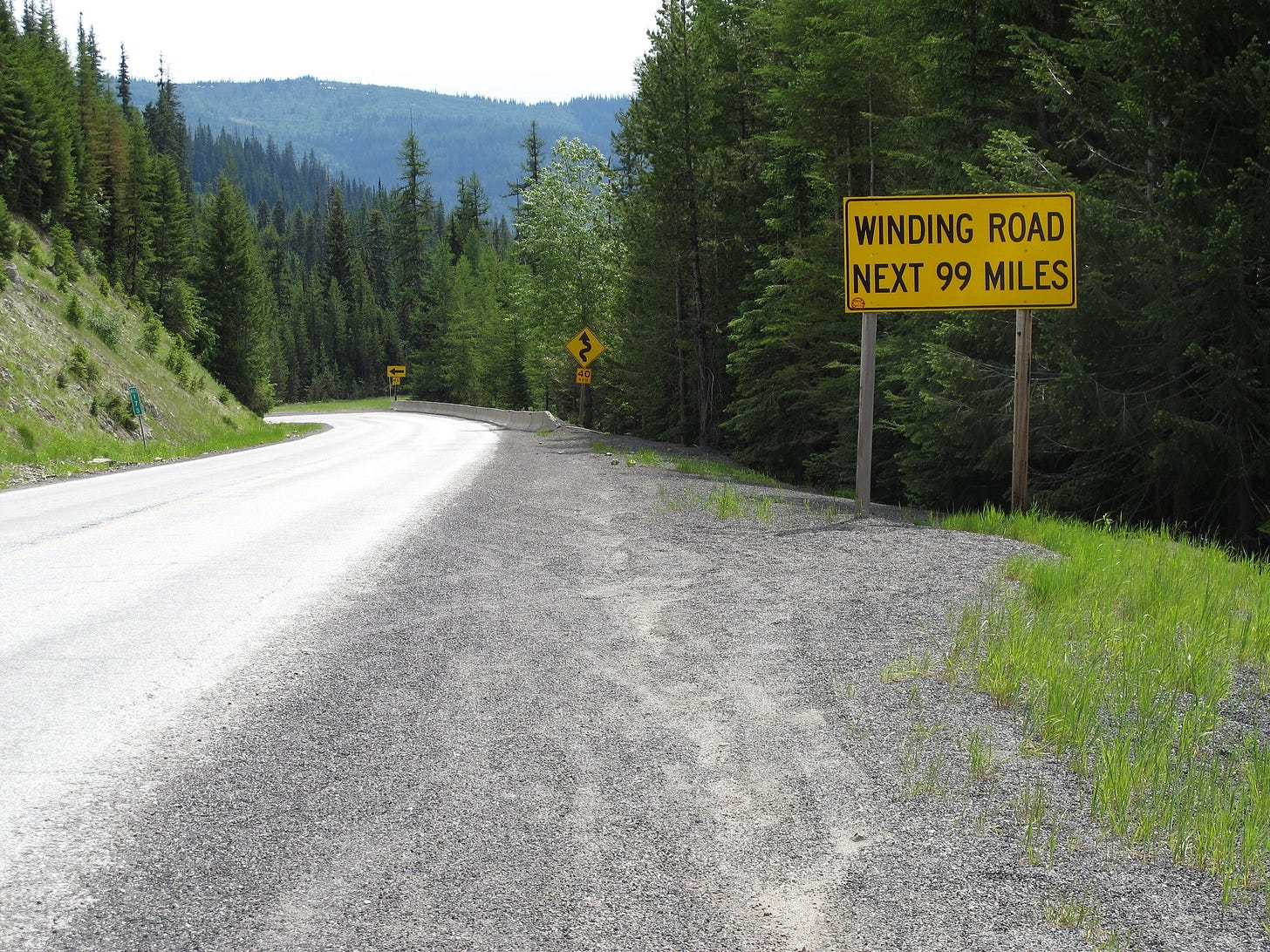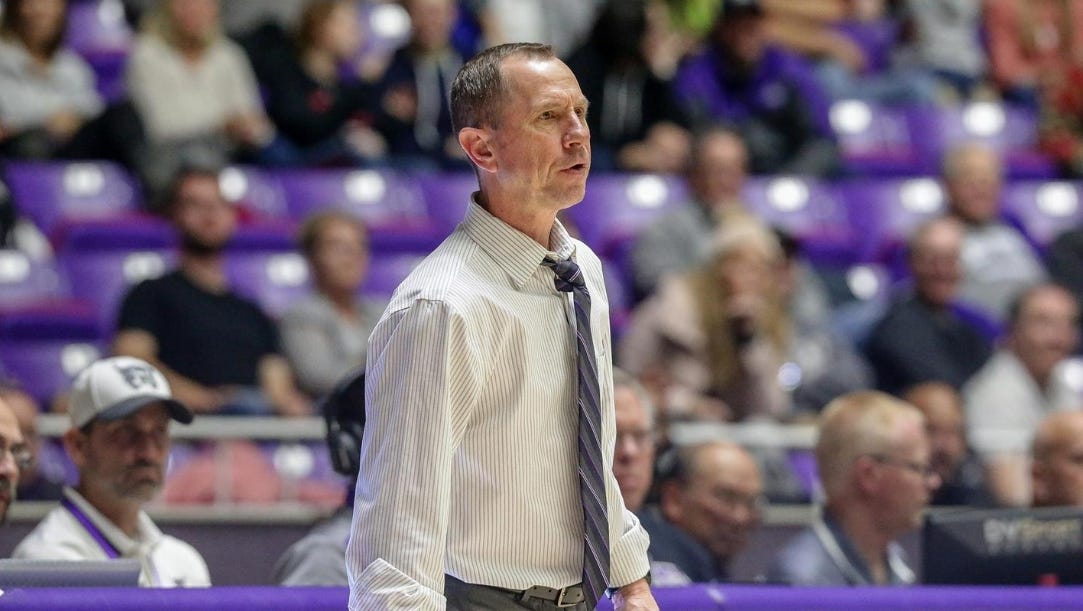
“It’s only relief. There’s no joy.”
One of the best experiences of my professional career was the two seasons I spent covering Big Sky basketball. From 2009 to 2011, I was the beat writer covering Idaho State men’s basketball, which gave me the chance to write about small-time college basketball with incredible access.
That’s because at the lower levels, there simply isn’t the formality that exists in the TV leagues. Many of the smaller schools are either overshadowed by bigger names, based in small towns that aren’t easy to reach, or both. Most play in small gyms, often the size of a high school facility or smaller. It’s just pure basketball, and the coaches and players are often grateful that anyone notices them at all.
That doesn’t mean there isn’t pressure. Even with the lack of attention, there’s still a lot of pressure on a coach at this level.
And that’s because success at this level means one of two things. It either means that you can stay at your current job for as long as you want, or you can get a bigger job for a million dollars a year or more. That’s a pretty good way to set your family up for life, but it only happens if you’re a consistent winner at the lower levels.
Randy Rahe was one of those coaches who was able to win consistently. In 16 seasons at Weber State, Rahe won 20 or more games nine times and finished third or better in the Big Sky 13 times.
If you aren’t familiar with the Big Sky, that’s hard. The Big Sky is one of the most spread-out leagues geographically in the nation. It stretches from Greeley, Colo., to Sacramento, Calif., and at one point, it included Grand Forks, N.D. There are almost no road trips in the league shorter than 200 miles (I know, having taken many of these trips myself). Back when I covered the league, Weber State and Idaho State were the only schools in the Big Sky within that distance. Idaho’s return to the league meant that Eastern Washington-Idaho now falls into that group, but it’s still a league where teams spend so much of the winter on the road.
It’s also a league where weather comes into play, given that these are mostly Rocky Mountain states (Sacramento State and Portland State don’t have the weather issues that the other eight face). That sign above at the Montana-Idaho state line still haunts me, because I had to cover that 99 miles during a raging snowstorm coming from a game at the University of Montana. I’m sure it’s beautiful in the summer, but driving that in a snowstorm is a terrifying experience. And those kinds of travels aren’t uncommon in the Big Sky.
I haven’t even touched on the last reason that’s so difficult: the budget. Big Sky teams play several games where they’re set up to lose. It’s already hard to get schools on their level to visit, because there just aren’t that many around. A school like IU-Indianapolis, where I live, has plenty of options. They could schedule a school like Bellarmine or Eastern Kentucky or Southern Indiana to play a home-and-home. That’s an easy bus ride of two to three hours for a team on their level. Big Sky teams don’t have those options nearby because of geography.
Several of their games come against teams in glamour leagues, where they take a paycheck and absorb a crushing defeat for their time. Occasionally, a bigger school will visit a Big Sky school, but only if the Big Sky team travels twice. Idaho State did that for a couple years, but year three caught up with them one year, giving them road games at all of BYU, Utah State and Utah for no many. The Bengals got creamed in every game and didn’t take home a dime for it.
So yeah, the odds against winning 20 games for a Big Sky team are pretty long. And yet, Randy Rahe did it repeatedly anyway. That’s why he was able to write his own ticket at Weber State, and why he went out on his terms after 16 years in Ogden.
But that didn’t mean it was always enjoyable. And after a four-point win over Idaho State in Ogden in 2011, he betrayed his feelings for a moment.
By any account, the Wildcats should have been feeling great about themselves that night. They’d overcome an early 10-point deficit against their Interstate 15 rivals. They’d come all the way back and withstood the Bengals’ best punch at the end. And they’d done it without Damian Lillard.
Yes, I was covering the Big Sky while Dame Time was just getting started. I knew that Lillard was on his way to stardom, and so did Rahe. But that night in January, Rahe had to scramble because Lillard was out with an injury.
And he wasn’t the only one. Rahe was hurting for healthy bodies from his team, so much so that during our weekly chat for my piece on the league in general, he had joked, “Dan, I might have to ask you to come down and practice with us this week.” (Had he done that, I’m pretty sure Weber State loses that game instead of winning by four.)
Despite all of that, the Wildcats gritted out a win. Rahe should have been feeling thrilled about his team’s performance. Instead, he gave the quote at the top of the page.
“It’s only relief. There’s no joy.”
This was an exhausted man, dealing with the toughest part of his schedule and seeing more difficulty ahead. He knew what was expected of his team, and he knew this was his best shot to get the Wildcats a chance at an NCAA tournament victory. And he knew that every game would play a role in the Wildcats’ chances at winning the Big Sky and giving themselves that chance.
Back in 2011, I heard what Rahe was saying, but I’m not sure I fully understood it at the time. There’s the difference between someone in their early 20s without much pressure in their life and someone who’s in the middle stages of their career.
Now I get it.
Never Feeling Satisfied

Since going freelance full-time, one of the hardest things for me has been to feel satisfied in what I’m doing. Every time I find a new opportunity, I always have my thoughts set on making sure I don’t screw it up. There’s no celebration, there’s no joy. There’s only relief that I’ve got another opportunity to earn for my family.
I’m not alone in that. It’s hard to celebrate yourself and give yourself any time to feel good about things, especially in our fast-paced culture. I had a great example this week when I picked up an assignment for July. It’s a great start to next month and should give me some more flexibility knowing that I have that secured.
I felt none of that. Even writing it out, I still feel more concern over giving myself more opportunities than enjoying the ones that I’ve got.
That’s a hard habit to break, and it’s one that I need to get better at breaking. Taking time for joy makes a difference, and it’s something we need to allow in our lives.
It can’t just be relief. There has to be joy. Otherwise, it’s going to be too difficult to survive.



